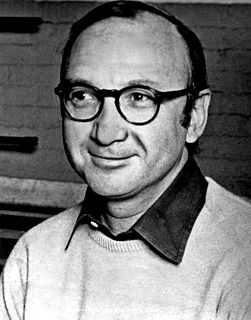A Quote by James McBride
I type most of my books for the first chapter or two - I use a manual typewriter for the first 50 pages or so - and then I move to the computer. It helps me keep the work lean so I don't end up spending 10 pages describing a leaf.
Related Quotes
The two mistakes that come to mind are people who introduce a flood of characters in the first few pages. Where the reader has to stop and get out a flow chart and has to figure out who is who. And you just can't do that - introduce the first four generations of a character's family in the first chapter. You can introduce four or five characters at the most in the first chapter. Another mistake is to use big words that are not normally used in conversation to try to impress folks with your vocabulary.
I work just as much as I always worked. And I can't explain the fact that there have been a series of books coming rather regularly out of me. I work most days and if you work most days and you get at least a page done a day, then at the end of the year you have 365. So the pages accumulate and then I publish the books.
I'm so used to artists saying to me, "Listen, I'm going to have five pages done next week," and then three weeks later I'm phoning them, begging them for two pages. And Stuart [Immonen]is a guy who will promise you five pages and deliver six pages, and the six pages are even better than you could have ever imagined.
I didn’t like it [computer] when I first began using it. Where it’s helped me a lot is in nonfiction which is a kind of different process. You’ve got research, you’ve got your notes, You can block out what you want to work on for the next 10 pages and put it in another file, and then you can kind of carve it into shape
One thing that helps is to give myself permission to write badly. I tell myself that I'm going to do my five or 10 pages no matter what, and that I can always tear them up the following morning if I want. I'll have lost nothing-writing and tearing up five pages would leave me no further behind than if I took the day off.
Lots of kids, including my son, have trouble making the leap from reading words or a few sentences in picture books to chapter books. Chapters are often long... 10 pages can seem like a lifetime to a young reader. Then reading becomes laborious and serious. That's why some of the chapters in my books are very short.
During my last year of college I wrote the same ten pages over and over again. Those ten pages became the first few pages of my first novel. I can still recite the opening paragraph from memory - only now I cringe when I do it because they are - surprise! - a classic example of overwriting, in addition to being a more than a little pretentious.





































